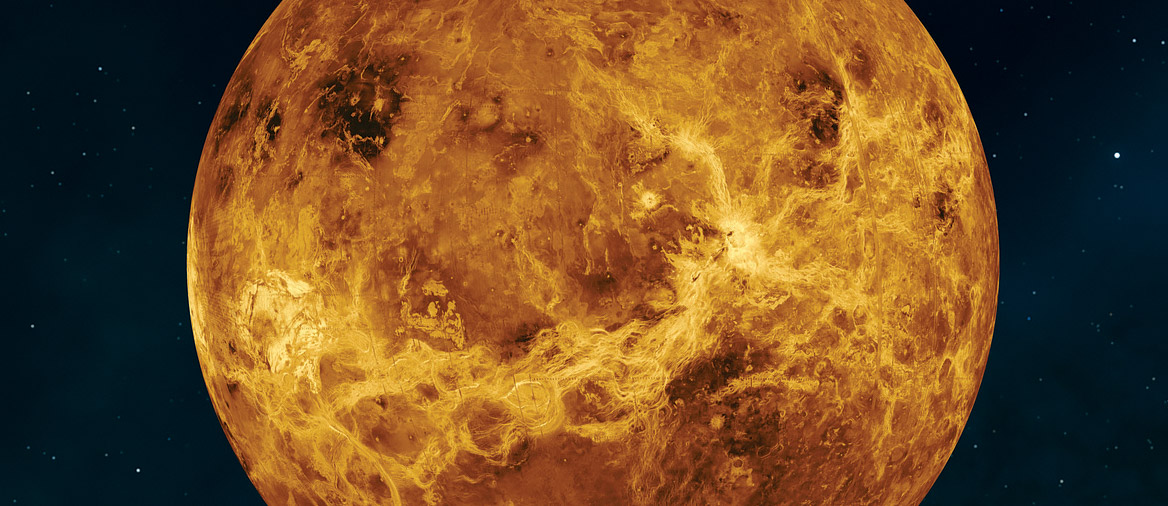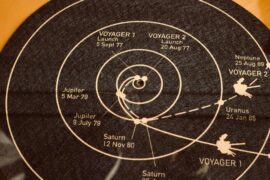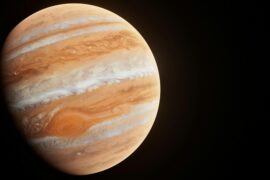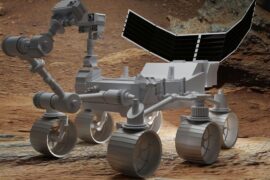With our current technology, a trip to Venus would take more than 3 months to make. Even though it is one of our neighboring planets, it is 215 million kilometers (133.5 million miles) away from Earth.
And yet, Venus is very important to Earth because it plays because it is a cautionary tale of the effects that the greenhouse effect can have on a planet and because without Venus, life on Earth might not exist and the planet could look completely different.
But how is it that an object that seems so far apart could have a huge effect on what happens here? In this article, we are going to learn more about all the reasons why Venus is important to us.
1. Thanks to Venus we know the distance between Earth and the Sun
Whenever the Sun, the Moon, and Earth align, the Moon blocks out the Sun for a few minutes forming an eclipse.
Venus does that sometimes too, except that due to the larger distance from Earth, it looks too small to block out any significant portion of the Sun. It just appears as a tiny black dot moving through it. That is called a Transit of Venus and it happens way less often than a Solar eclipse.
Venus transits were very useful for astronomers between 1500 and 1800 because they allowed them to measure almost exactly for the first time the distance between Earth and the Sun. From that information, the correct size and distances of the Solar system up to Saturn, which was the farther planet they could see with telescopes at the time.
The technique used to make that measurement makes use of an effect called parallax. It works by measuring the time it took Venus to transit the Sun, then making the same measurement at a different location on Earth, and then simply applying basic trigonometry formulas and Kepler’s third law to calculate the result.
This method was proposed by Edmond Halley (of Halley’s comet fame), and although he died before the next Venus transit in 1761, other astronomers around the world collaborated to take the necessary measurements and learned that Earth is approximately 148 million kilometers (92 million miles) away from the Sun. That distance is now known as 1 Astronomical Unit (AU) and is used as a standard to measure larger distances. For example, they could also calculate that Earth is about 8.5 Astronomical Units away from Saturn, or about 1.2 billion kilometers (740 million miles).
2. Venus used to be like Earth
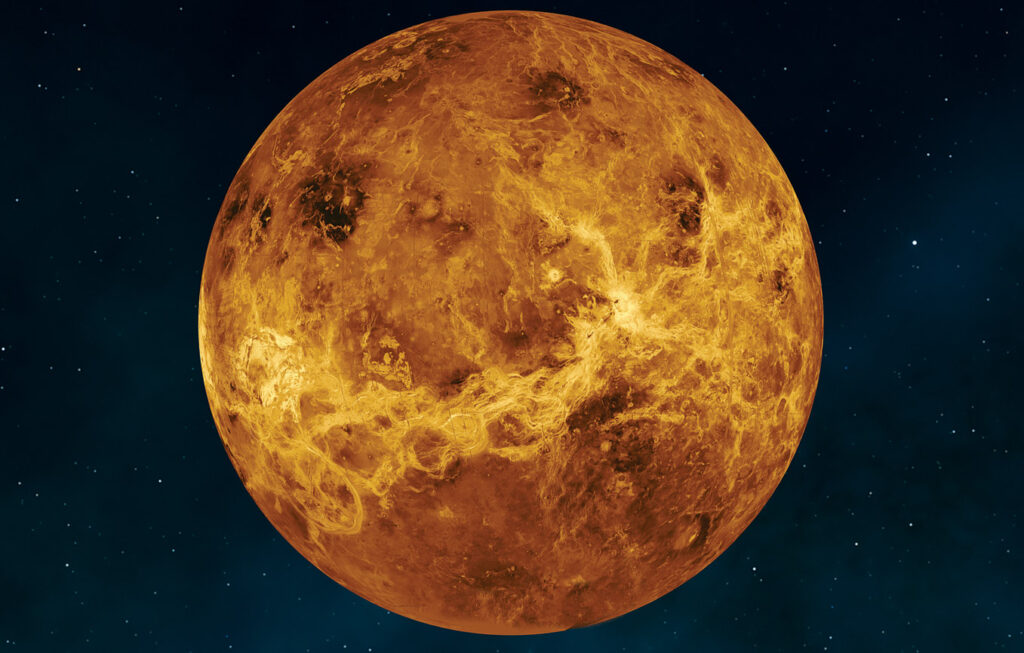
Venus is sometimes referred to as Earth’s twin planet. Both formed around the same time, have similar compositions and are almost the same size. Scientists believe both planets started out very similarly and that Venus could have even had oceans of water at some point.
So what happened? how come Venus is a hot, toxic planet now?
Well, that’s exactly the reason why it is so important for us to learn more about Venus. We know that the planet went through an extreme “greenhouse effect”. That means that its atmosphere got filled with so much carbon dioxide that the systems the planet had to balance its temperature were broken and it started to heat up, creating a cycle that generated more CO2 which trapped more heat, and so on. The water in Venus was fully evaporated and probably lost to space. The end result was what we know today, the hottest planet in the Solar system with average temperatures of 464°C (867°F) and a toxic, uninhabitable atmosphere.
What we don’t know is what was the initial cause of the problem. And that is worrying because if it happened to Venus, it could probably happen to us.
Scientists look at Venus as a warning sign of what could happen if we let climate change run wild on Earth. Understanding more about the Venusian past could help us prevent the same faith for our planet.
To learn more about the differences and similarities between both planets check out this article: Venus and Earth comparison.
3. Venus was the first planet explored by a spacecraft
Here’s some fun trivia. Venus is not the closest planet to Earth. Neither is Mars. Due to the speed of their orbits, Mercury is on average the closest planet to Earth.
Still, Venus is our neighbor and it is the easiest planet to see with the naked eye. All you have to do is look at a sunrise or a sunset and you will often see it close to the Sun. It is easy to confuse it for a star because it is so bright, and for a long time, ancient people thought it was exactly that. That is why it is also known as the morning star.
But then, they discovered that Venus has a different movement from that of a star. While we don’t know which was the first planet that ancient civilizations discovered, it was most likely Venus. There are records that date back to 2,000 BC that show they tracked and recorded its movement.
That was not the only “first” Venus has. It was also the first planet that we sent a spacecraft to. Only seven years before the moon landing, the Mariner 2 became the first interplanetary spacecraft when it flew by Venus on December 14th, 1962.
The main objectives of the mission were to measure the temperature, magnetic field, interplanetary dust, and solar winds on the planet as well as test the long-range communication device that would be the foundation for the Apollo program.
Since then, a total of 15 missions by different space agencies have been sent to Venus. Most of them only as flybys or obiters, but a few like the Venera probes sent by the Soviet Union entered the orbit of the planet and even landed on the surface (although they didn’t work for long as the extreme heat of the planet destroyed them quickly).
There are currently plans by NASA to go back to Venus and send at least 3 missions starting in 2029.
4. Venus could have life
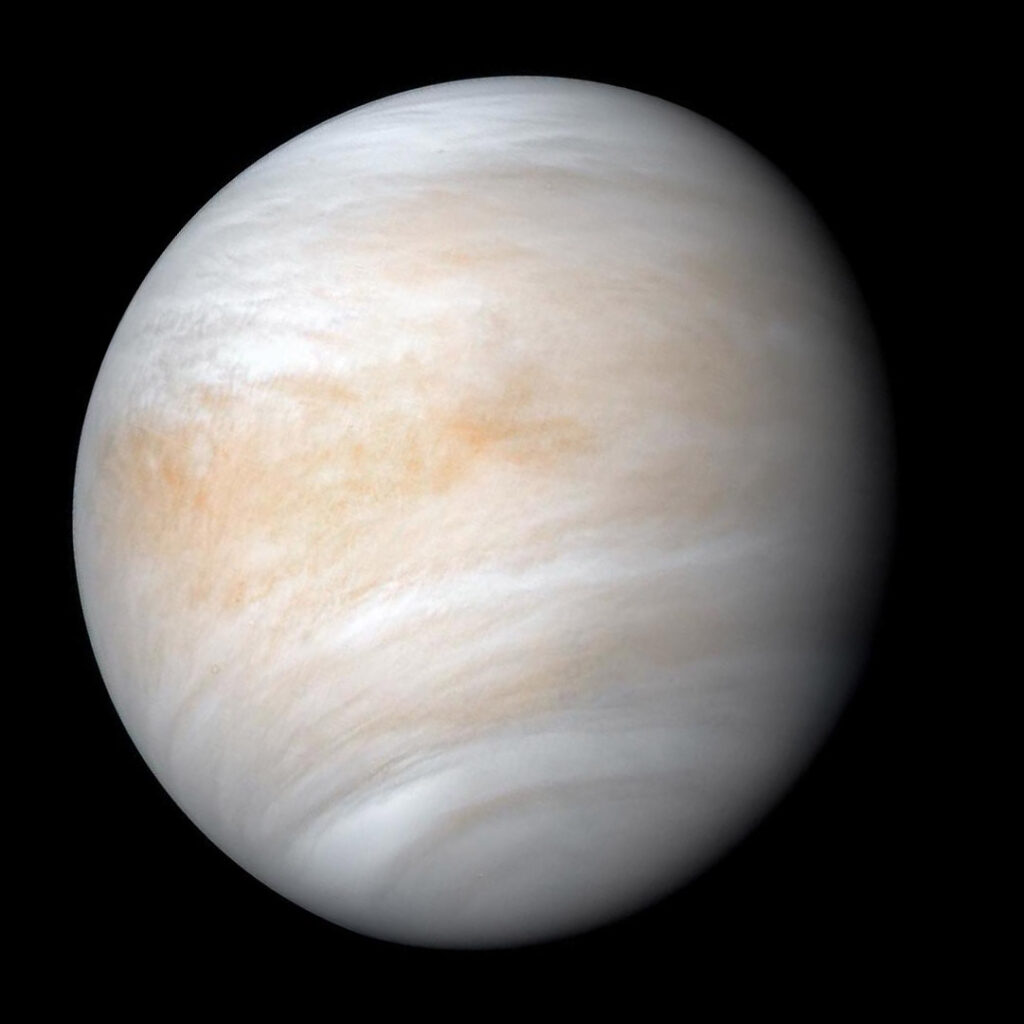
It is extremely unlikely that Venus could support any form of intelligent or complex life. The conditions of the planet are just too harsh. It is too hot and too toxic.
However, some scientists believe that simpler forms of life, specifically microbes, could live in the atmosphere.
In 2020, scientists discovered traces of a gas called phosphine (PH3) in Venus’s atmosphere. Phosphine on Earth is usually the result of biological processes and researchers haven’t been able to identify a different geological or chemical process that would result in the quantities of this compound that seem to be found on Venus.
This has led them to believe that this might be an indicator of the presence of microbial life. There are areas of the Venusian atmosphere that are colder than the surface, so it might be possible that there could be a region with just the right characteristics for microbes to develop.
All this is of course very far from being confirmed. But it is a good reason to keep on studying Venus.
5. Venus has some strange characteristics
Learning more about Venus is important because it will help us to get a better understanding of many things about the origin of planets, the mechanics of the universe, and even the origin of life.
Venus has many unique characteristics that make it different from the other planets and understanding how these came to be will be very useful.
For example, Venus rotates in the opposite direction to most of the other planets. It rotates clockwise while all the planets rotate counter-clockwise like the rotation of the SUn. The only other planet that does something similar is Uranus, but Uranus rotates almost sideways. The most popular theory is that Venus was hit by another large planet-sized object at some point and the impact changed its rotation. Other theories suggest that Venus was at some point at a very unique location where the Sun’s gravity and the gravity from the other nearby planets (including Earth) “pulled” in the opposite direction of its original rotation and made it slow down until it was almost static and then it started to rotate the other way.
Another curious thing about Venus is that its atmosphere spins much faster than the rest of the planet. The Venusian atmosphere rotates every 4 days, while it takes the rest of the planet 243 days to complete just one rotation. We still don’t know the exact cause of this but astronomers think this could help us study the planet by sending “airships” that could study the planet from above instead of having to land on the planet.
Summary
Venus is important to Earth for many reasons, including:
- It helps us understand how climate change can affect a planet
- It has served as a reference point to learn the exact distances and size of the Solar system
- Venus could potentially support microbial life in its atmosphere
Related reading
Enjoyed this article?
Get daily 10-minute PDFs about astronomy to read before bed!
Sign up for our upcoming micro-learning service where you will learn something new about space and beyond every day while winding down.

